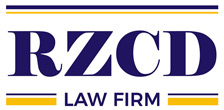Labour Law
Labour Law refers to the legal principles that apply to workplaces that are unionized.
To create or dissolve a union or to unionise a workplace, appropriate applications must be filed with the Ontario Labour Relations Board or the Canada Industrial Relations Board.
Generally speaking, if an employee is a member of a union many of his or her employment rights will be defined in accordance with the collective agreement that the union has signed with the employer. For the most part, disputes under the collective agreement are resolved through the grievance process, in which the union will represent the interests of the employees. If a dispute can be resolved under the grievance process defined by the collective agreement, then it is not usually possible to go to court to resolve the dispute.
Although the union is responsible for representing its members in many disputes, in some circumstances union members may be able to represent themselves or hire their own counsel. Matters that fall under this category include issues concerning workers' compensation, pension or disability insurance claims, human rights, or entitlement to minimum employment standards under the Ontario Employment Standards Act or Canada Labour Code.
If the employee is unhappy with the manner in which the union is dealing with a grievance the employee may file a complaint with the Canada Industrial Relations Board or the Ontario Labour Relations Board.
If you have any concerns or queries regarding any aspects of Labour Law please don’t hesitate to contact the team at RZCD.
